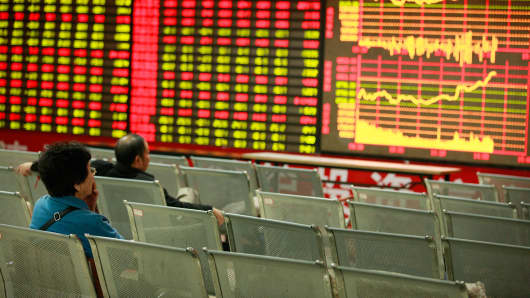Chinese stocks, which have had a forgettable year so far, climbed 3 percent on Wednesday, after the country's new leadership promised further reforms. But is the rally that has fizzled out many times in the past here to stay?
China's new Communist Party chief and incoming president Xi Jinping said on Tuesday, while addressing a Politburo meeting, that the government would deepen economic reforms, including allowing market forces to play a bigger role in setting prices.
(Read more: China to Fine-Tune Policies in 2013)
The comments, plus positive economic data over the past couple of months, were enough to give the market a lift, analysts said, however adding that the sustainability of the rally was in question.
"Local investors are finally taking things more positively because there are clear signs of recovery in the economy. But it's a short-term rally and whether it follows through, we will see," Phillip Chan, director with Shenyin Wanguo Securities in Hong Kong told CNBC.
The Shanghai Composite Index has shed 60 percent of its value since a 2007 peak and is languishing near 4-year lows. It has also fallen below the key support level of 2,000 several times this year. The index closed at 2,031.9, an upside of 2.87 percent from Tuesday's close.
According to Dhiren Sarin, chief technical strategist for Asia with Barclays, the larger trend for the Shanghai Composite still remains lower at this point even if the market has bounced in the near-term.
"For the past two years, the bounces have repeatedly stopped short of previous meaningful peaks," Sarin said. "The most recent peaks are around the October high of 2,145. It would take a close above this level to suggest that the downtrend is changing. Until then, the medium to longer term view is still for a move down towards 1,900 and potentially 1,815."
Has the Market Bottomed?
While doubts remain on whether this rally will stick, Alan Lam, China strategist with Julius Baer in Hong Kong, said the scale and pace of the selloff in Chinese stocks has slowed recently, indicating that a bottom could be near.
"I think the market could establish a bottom by the fourth quarter or at the very latest, early next year," he said.
At the same time, investors are increasingly giving up hope that the government will come up with major stimulus measures in the new year. Xi on Tuesday, while promising further reforms, also emphasized "policy continuity and stability," further reinforcing this view, said Zhiwei Zhang, chief China economist with Nomura in Hong Kong.


